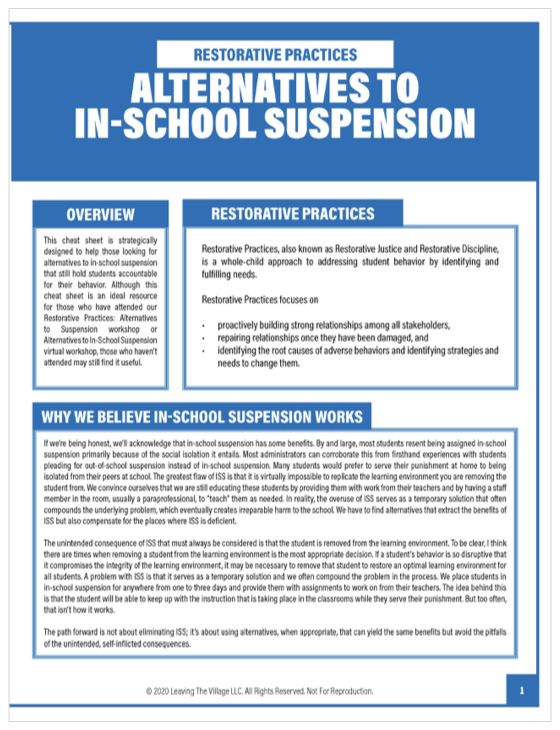Alternatives To ISS: Structured Day
If we're being honest, in-school suspension has some benefits. By and large, most students resent being assigned in-school suspension primarily because of the social isolation. Most administrators can corroborate this from firsthand experiences of students pleading for out-of-school suspension instead of in-school suspension. Many students would prefer to serve their punishment at home rather than being isolated from their peers at school. The most significant flaw of ISS is that you are removing the student from the learning environment, and it is relatively impossible to replicate the learning environment you are removing the student from. We convince ourselves that we are still educating these students by providing them with work from their teachers and a staff member in the room, usually a paraprofessional, to "teach" students as needed. In reality, the overuse of ISS serves as a temporary solution that often compounds the underlying problem, eventually creating irreparable harm to the school. We must find alternatives that extract ISS's benefits and compensate where ISS is deficient.
This course offers participants a specific alternative to in-school suspension, known as Structured Day, that reduces the need for both in-school and out-of-school suspensions for behaviors that occur outside the classroom in unstructured environments on campus.
SUPPORTING RESOURCES

COURSE OUTLINE
Alternatives To ISS: Structured Day
MEET THE CONSULTANT
Kelvin Oliver
Kelvin Oliver is an educational consultant specializing in supporting schools by developing and implementing behavior management systems that synergize restorative practices, PBIS (Positive Behavioral Interventions and Supports), and traditional consequences. As a campus administrator, he was instrumental in supporting the integration of Restorative Practices with PBIS and Traditional Consequences. Kelvin created a campus-based support model with weekly professional development and an implementation support team. In 2007, Kelvin started his career in Texas as a special education teacher before transitioning to general education as a sixth-grade math teacher. He transitioned to campus math specialist and district curriculum specialist before becoming an assistant principal and later campus principal.

